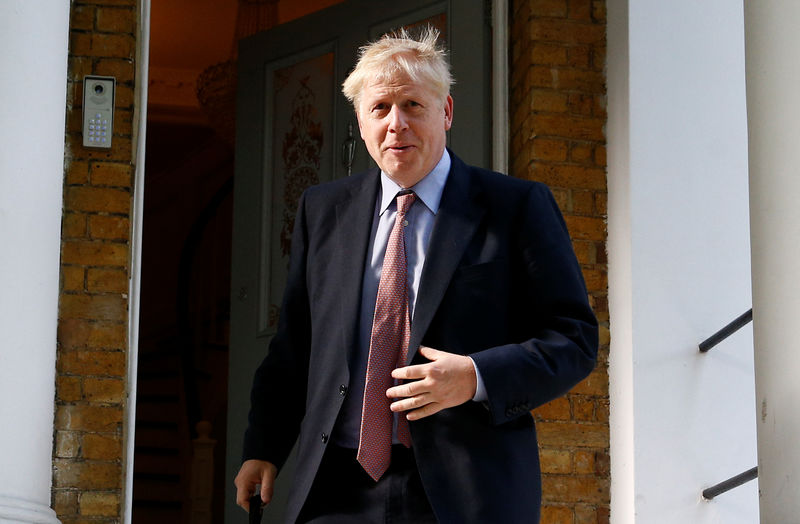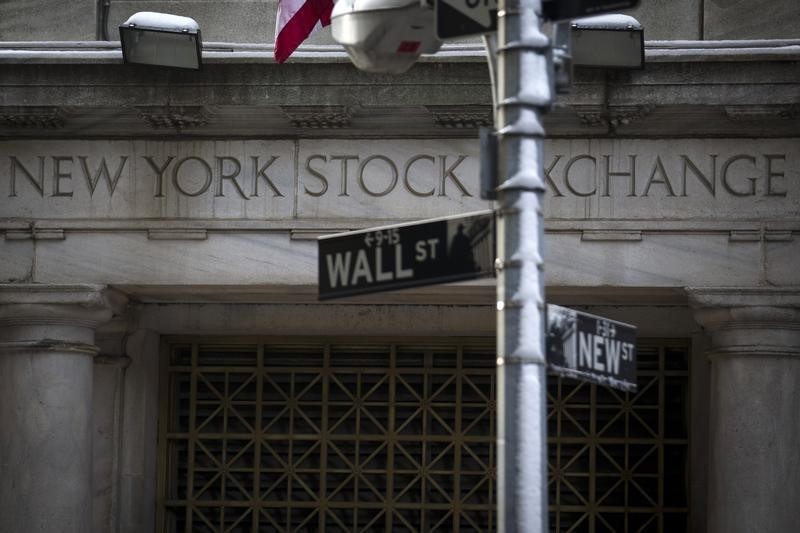By Sinéad Carew
New York (Reuters) - Wall Street's major indexes charged higher on Friday, as sharply slowing U.S. job growth boosted hopes for Federal Reserve interest rate cuts while optimism about potential progress in U.S. trade fights with China and Mexico added to risk appetites.
Investors bet that labor market weakness would give the Fed a reason to provide the economy with more support, pushing the S&P 500 and the Dow to their biggest weekly gains since the end of November, right before a massive year-end sell-off.
A Labor Department report showed nonfarm payrolls increased by 75,000 jobs last month, much smaller than the 185,000 additions estimated by economists in a Reuters poll, suggesting the loss of momentum in economic activity was spreading to the labor market.
As a result traders raised bets for a rate cut in July followed by two more rate cuts by year-end.
"The jobs report indicates there's some weakness but the economy does remain relatively robust at this point," said Peter Jankovskis, co-chief investment officer at OakBrook Investments LLC in Lisle, Illinois.
Investors are putting weak jobs "in the context that it might result in a more timely Fed action which would be more supportive than if they wait too long," he said.
But others noted that investors appeared to give more weight to Fed policy than economic data.
"Right now the market is willing to accept disappointing growth in exchange for the prospect of lower rates," said Jack Ablin, chief investment officer at Cresset Capital Management in Chicago. "We're addicted to low rates and we're willing to forsake our economic growth in exchange for those low rates."
The Dow Jones Industrial Average rose 263.28 points, or 1.02%, to 25,983.94, the S&P 500 gained 29.85 points, or 1.05%, to 2,873.34 and the Nasdaq Composite added 126.55 points, or 1.66%, to 7,742.10.
Also adding to investor enthusiasm on Friday was a notice from U.S. officials granting Chinese exporters two more weeks to get their products to the United States before raising tariffs on those items. U.S. and Chinese leaders are expected to meet late in June at the G20 meeting.
But while U.S. President Donald Trump said there was a "good chance" of a US-Mexico trade deal, if the two countries failed to make an agreement he plans to impose a 5% tariff on Mexican imports on Monday.
Mexican sources told Reuters late Friday that negotiators are battling to reach agreement over a U.S. demand that Mexico accept more asylum seekers.
"An interest rate cut is being priced into the market, but in order to go higher you do need to get progress on the trade front because in the longer term that is the bigger issue for markets," said Larry Adam, chief investment officer at Raymond James in Baltimore, Maryland.
The S&P's biggest boosts on the day were Microsoft Corp (NASDAQ:MSFT), Apple Inc (NASDAQ:AAPL) and Amazon.com (NASDAQ:AMZN).
Technology stocks, among the hardest hit due to the recent escalation in trade tensions, rose 2% and provided the biggest boost of the S&P 500's 11 major sectors. Chipmakers, which get a major portion of their revenue from China, also gained, with the Philadelphia chip index rising 1.2%.
However, tariff-sensitive industrials underperformed slightly with a 0.9% gain.
Interest-rate sensitive bank stocks dropped 0.98%. The only major S&P sectors in the red were the broader financial index, down 0.19%, and a defensive favorite, utilities, which fell 0.77%.
"If people are thinking the Fed action is going to support the economy you don't have the safe haven mission for utilities coming into play," said Oakbrook's Jankovskis.
Beyond Meat Inc shares closed up 39.4% at $138.65 after the maker of plant-based burgers said it expects to more than double its revenue and report breakeven EBITDA this year. It went public at $25 on May 2.
Advancing issues outnumbered declining ones on the NYSE by a 3.10-to-1 ratio; on Nasdaq, a 1.93-to-1 ratio favored advancers.
The S&P 500 posted 116 new 52-week highs and no new lows; the Nasdaq Composite recorded 100 new highs and 99 new lows.

On U.S. exchanges 6.48 billion shares changed hands compared with the 7.04 billion average for the last 20 sessions.
